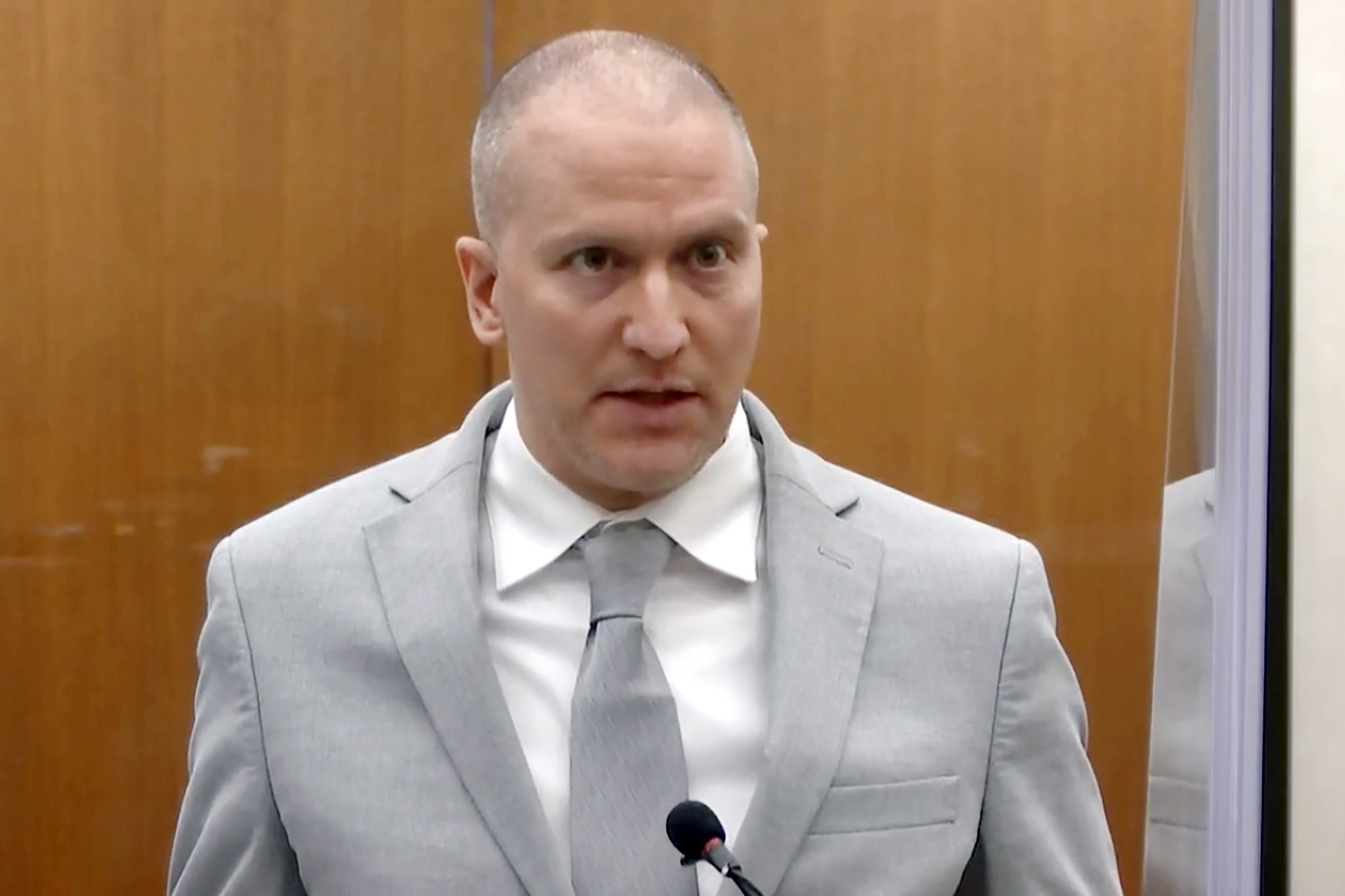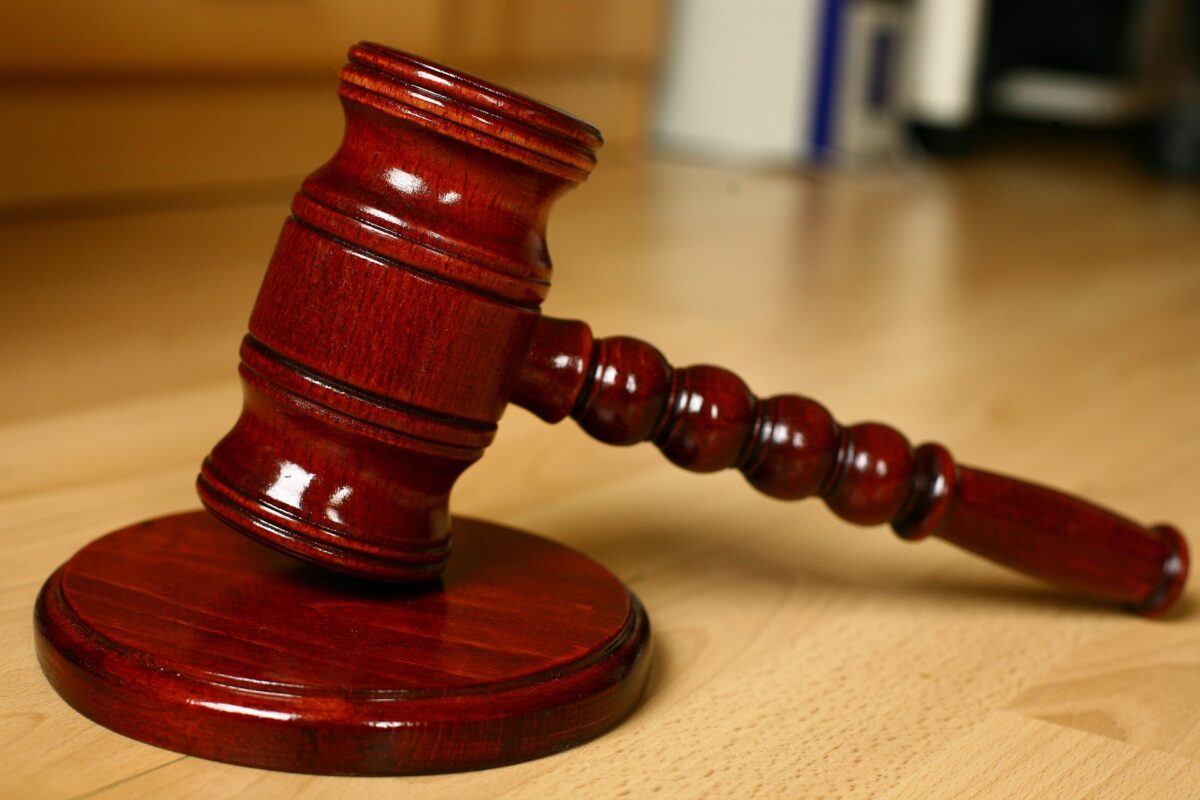
What's New Former Minneapolis police officer Derek Chauvin 's legal team has been granted permission to examine heart tissue and fluid samples taken during George Floyd 's autopsy as part of a challenge to his federal civil rights conviction. U.S.
District Judge Paul Magnuson on Monday granted a motion to inspect the evidence as part of Chauvin's claim that it was an underlying heart condition—and not Chauvin's knee on Floyd's neck—that caused the Black man's death in 2020. Why It Matters Floyd, 46, died on May 25, 2020 in Minneapolis after Chauvin, who is white, kneeled on his neck for more than nine minutes. A bystander video that showed Floyd repeatedly gasping that he couldn't breathe as Chauvin kept him pinned to the ground sparked protests around the country and beyond and a reckoning over police brutality and racial injustice.

Chauvin was sentenced to 22 1/2 years in prison in 2021 after jurors found him guilty of second-degree murder and other charges—a moment that was viewed as a significant step forward in holding officers accountable for the killings of unarmed people. Chauvin later pleaded guilty to a separate federal charge of violating Floyd's civil rights and was sentenced to 21 years in federal prison, which he is serving concurrent with his state sentence. Chauvin is not set to be released until 2037, according to the U.
S. Bureau of Prisons. However, even if his federal conviction is overturned, he would still have to serve the remainder of his state sentence.
What To Know Chauvin is seeking to overturn his federal civil rights conviction over "ineffective assistance of counsel." He argued that he would not have pleaded guilty if he had been aware of pathologist Dr. William Schaetzel's belief that he did not cause Floyd's death.
He said Eric Nelson, his original defense attorney, did not inform him about an email from Schaetzel where he said he did not believe Chauvin caused Floyd's death. Nelson failed to seek testing of heart tissue samples that Schaetzel believed would show evidence of a heart condition called takotsubo cardiomyopathy, according to Chauvin. "Given the significant nature of the criminal case that Mr.
Chauvin was convicted of, and given that the discovery that Mr. Chauvin seeks could support Dr. Schaetzel's opinion of how Mr.
Floyd died, the Court finds that there is good cause to allow Mr. Chauvin to take the discovery that he seeks," Magnuson wrote in Monday's order. Nelson has been contacted for comment via email.
Robert Myers, an assistant federal defender in Minneapolis who is handling Chauvin's appeal, has also been contacted for comment via email. What George Floyd's Autopsy Report Said About His Death The Hennepin County medical examiner's office ruled Floyd's death was a homicide. An autopsy report written by Dr.
Andrew Baker, the county's chief medical examiner, said Floyd's death was caused by "cardiopulmonary arrest" complicated by "restraint, and neck compression" while he was being subdued by police. The report said Floyd had severe "atherosclerosis heart disease" and an enlarged heart due to high blood pressure, or hypertension. Derek Chauvin's Life in Prison Chauvin is currently housed at the Federal Correctional Institution in Big Spring, a low-security prison in Texas.
He was moved to the facility in August—nine months after being attacked by another inmate at a federal prison in Arizona. Chauvin was stabbed 22 times at the FCI Tucson by John Turscak, a former gang leader and one-time FBI informant. Turscak told investigators that he targeted Chauvin due to his notoriety for Floyd's killing.
Prior to his move to Arizona, Chauvin was held in solitary confinement in Minnesota's only maximum-security prison due to concerns for his safety. He was kept in his cell for all but an hour each day during which he was allowed out to exercise. Could Derek Chauvin's Conviction be Overturned? Chauvin has argued that no jury would have convicted him if it hard heard Schaetzel's evidence.
When he pleaded guilty to the federal charge, he waived his rights to appeal except on the basis of a claim of ineffective counsel. The U.S.
Supreme Court in November 2023 declined to hear Chauvin's appeal of his state court murder conviction. What People Are Saying Ben Crump, an attorney who represented Floyd's family, said on X : "A judge ruled that Derek Chauvin's lawyers may test preserved samples of George Floyd's heart, challenging his federal conviction. Nothing changes what we all watched: His knee on George Floyd's neck for 9 minutes and 29 seconds.
" What's Next Chauvin's team "may take discovery of any and all histology slides" of Floyd's heart and other heart tissue samples taken during the autopsy, Magnuson's order said. They can inspect and make copies of any photographs taken of Floyd's heart and can "take quantities of certain fluids" for testing..











